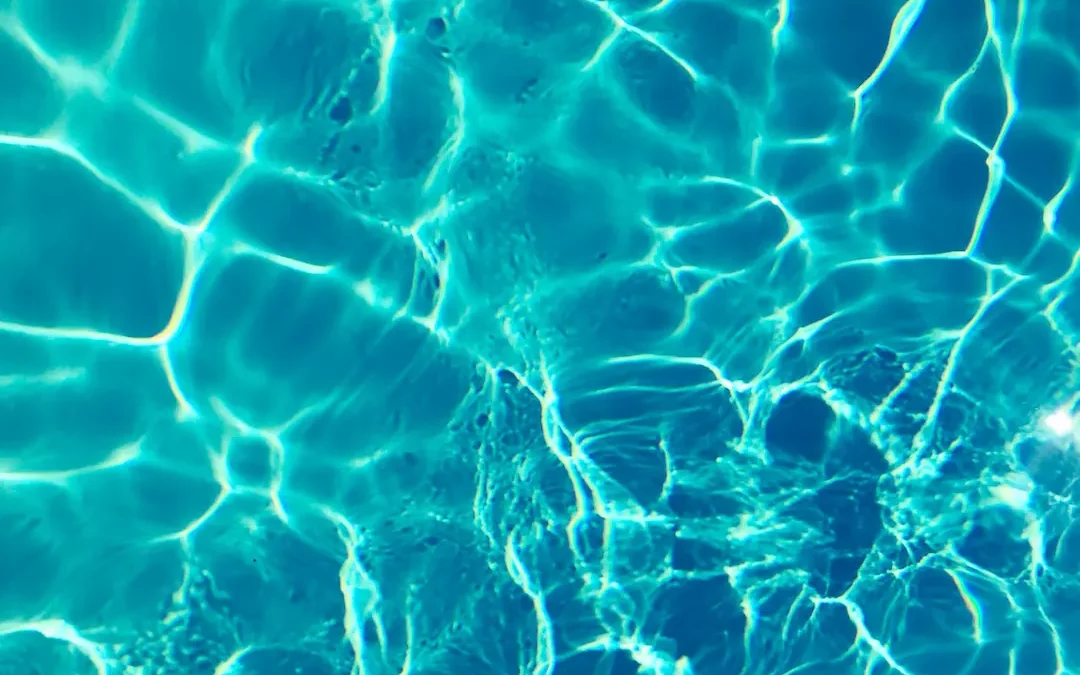
Saltwater Swimming Pool Facts
September 29, 2023
Guide to Our Inground Fiberglass Pool Installation Process
October 14, 2023When most people think of the scent of a swimming pool, they recall that nostalgically stinging chemical, chlorine. But with a saltwater pool, you won’t be lounging poolside with bloodshot eyes, a smelly suit, or crunchy hair from the pool chemicals. Saltwater pools are growing in popularity due to this reason – and with them on the rise, we’re seeing more frequently asked questions about saltwater pools. Let’s take a look at these saltwater pool FAQs.
Saltwater Pool FAQs
The most common question asked in the past year was, “What equipment do I need to buy to change my pool to a saltwater pool?”
The answer for this is very simple: none other than the chlorine generator itself. You can use your standard pool pump and filter as long as they sufficiently produce the required water flow. If you have a maze of plumbing, equipment that is a long way from the pool or an undersized circulation system, this could be a problem, but these situations are rare.
The chlorine generator is easily installed into the existing plumbing. Be sure you check on the electrical requirements for operation. Some plug into a 110V outlet, and some units are wired to the pump. Be sure to read the installation manual so that safety and warranty issues do not become a problem. Many above-ground pool warranties will be voided if a chlorine generator is used, so be sure to do your research.
Why are you talking about a chlorine generator when I asked about a saltwater pool?
Saltwater pools are chlorine pools. You use salt to produce chlorine in the form of sodium hypochlorite, or very strong bleach. This process has been used since the 1800s, but has become more user-friendly and safer.
An energized cell will cause the salt and water to change into chlorine and by-product gases. It is common to see small bubbles where the water returns to the pool. These bubbles are the by-product gas.
Then, the chlorine goes into the pool and grabs some nasty stuff, like ammonia from sweat and urine. The chlorine becomes a chloramine that usually hangs around until you “shock” the pool.
However, with a chlorine generator, the chloramine will travel back through the energized cell and become salt, water and by-product gas. Then, it will be ready to start the process over again. This enables you to shock less frequently or not at all with chlorine. Of course, every pool is different; many factors determine the type of care it needs. See more at: www.poolfyi.com

What is a saltwater pool?
A saltwater pool is a swimming pool that uses a salt chlorinator system to generate chlorine from salt. Instead of adding chlorine directly, the pool owner adds salt to the water, and the chlorinator converts it into chlorine through a process called electrolysis.
How does a salt chlorinator system work?
A salt chlorinator consists of a salt cell, which is installed in the pool’s plumbing. As water passes through the cell and an electric current is applied, the salt is transformed into chlorine gas, sanitizing the pool. This eliminates the need for manual addition of chlorine.
Is a saltwater pool the same as a seawater pool?
No, they are different. A saltwater pool has a much lower salt concentration than seawater. While seawater typically has around 35,000 parts per million (ppm) of salt, a saltwater pool typically ranges from 3,000 to 5,000 ppm.
Is swimming in a saltwater pool similar to swimming in the ocean?
While the salinity levels are lower in a saltwater pool compared to the ocean, some swimmers find the experience similar. The water is gentler on the skin, and the absence of strong chlorine odors enhances the swimming experience.
Do saltwater pools require less maintenance than traditional chlorine pools?
In some aspects, yes. While saltwater pools still require regular testing and maintenance, the continuous generation of chlorine by the salt chlorinator can result in more stable and consistent chlorine levels, reducing the need for frequent adjustments.
Can I convert my traditional chlorine pool to a saltwater pool?
In many cases, yes. Converting a chlorine pool to a saltwater pool involves adding a salt chlorinator system. However, it’s advisable to consult with a professional to ensure that your pool equipment and materials are compatible with the saltwater system.
Is a saltwater pool better for skin and eyes than a chlorine pool?
Many people find that saltwater pools are gentler on the skin and eyes compared to traditional chlorine pools. The lower chlorine concentrations and absence of certain chlorine byproducts contribute to a more comfortable swimming experience.
What are the potential drawbacks of saltwater pools?
While saltwater pools have several advantages, they can cause corrosion to certain materials if not properly maintained. Additionally, the initial cost of installing a salt chlorinator system is higher than the cost of traditional chlorine systems.
How often do I need to add salt to a saltwater pool?
The frequency of adding salt to a saltwater pool depends on factors such as evaporation, splash-out, and dilution from rainwater. Typically, you may need to add salt a few times a year to maintain the recommended concentration.
Can I use regular table salt in my saltwater pool?
It’s recommended to use high-purity pool-grade salt to avoid impurities and additives found in regular table salt. Pool-grade salt is specifically designed for use in saltwater pools, ensuring better performance and water quality.



